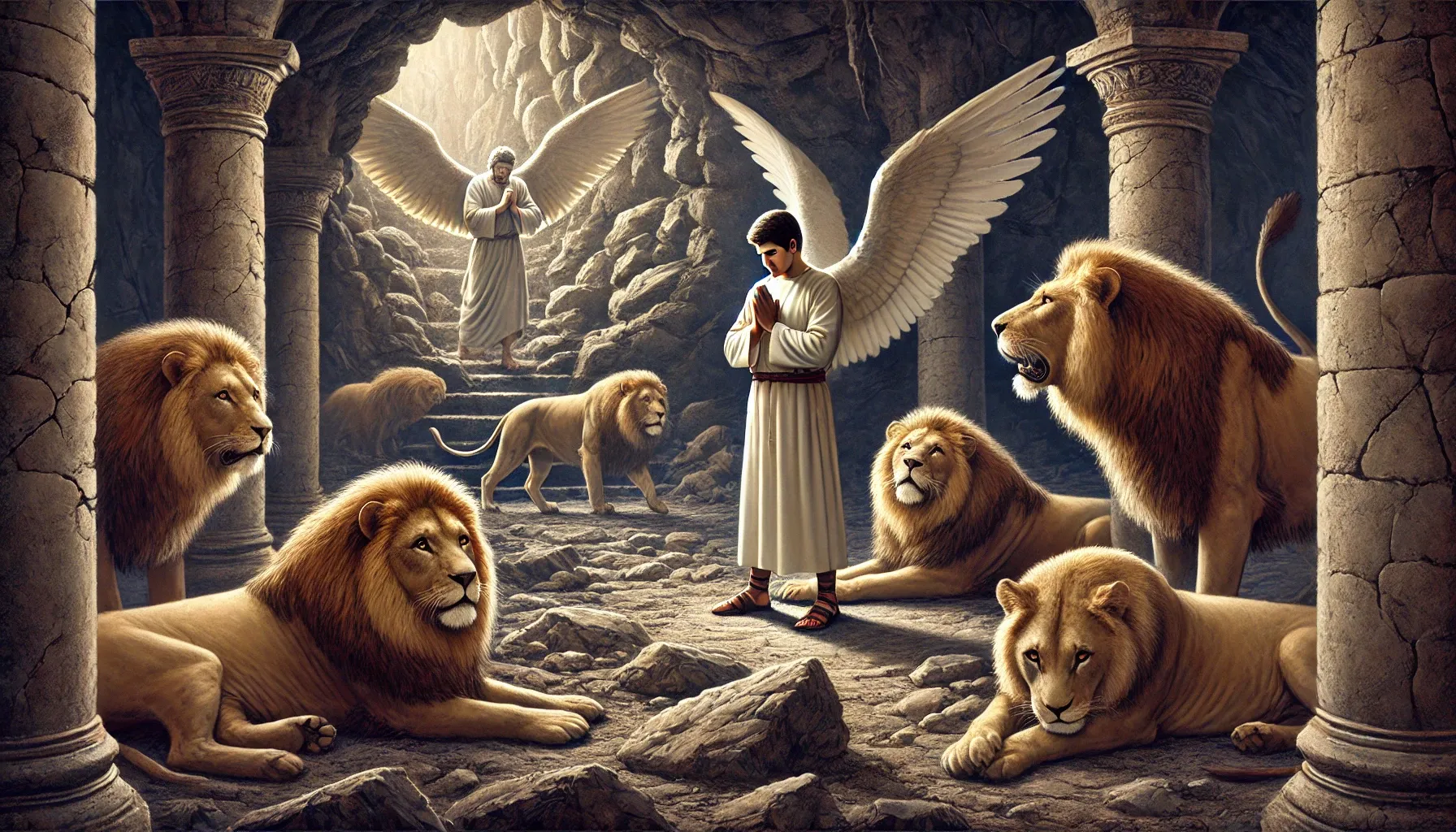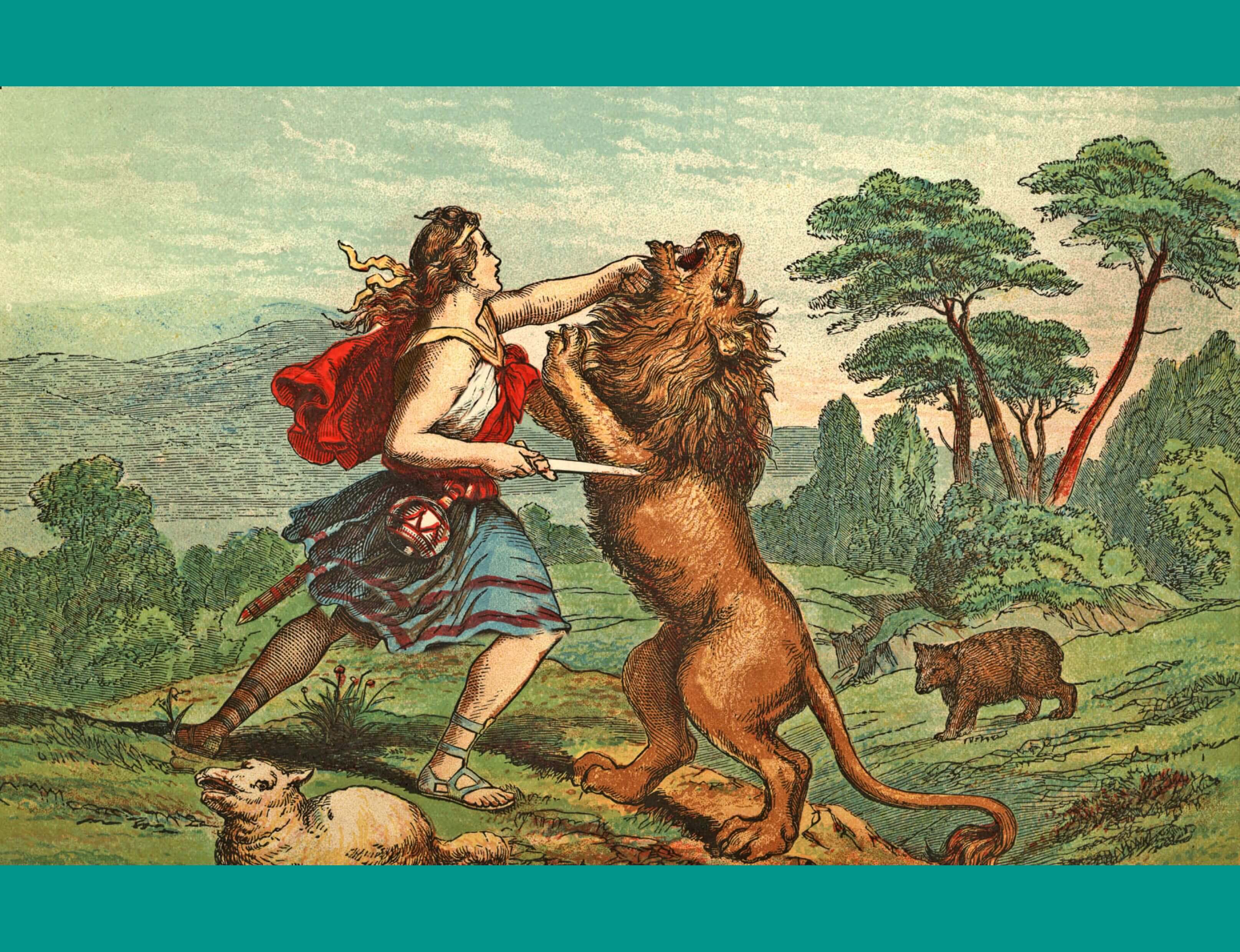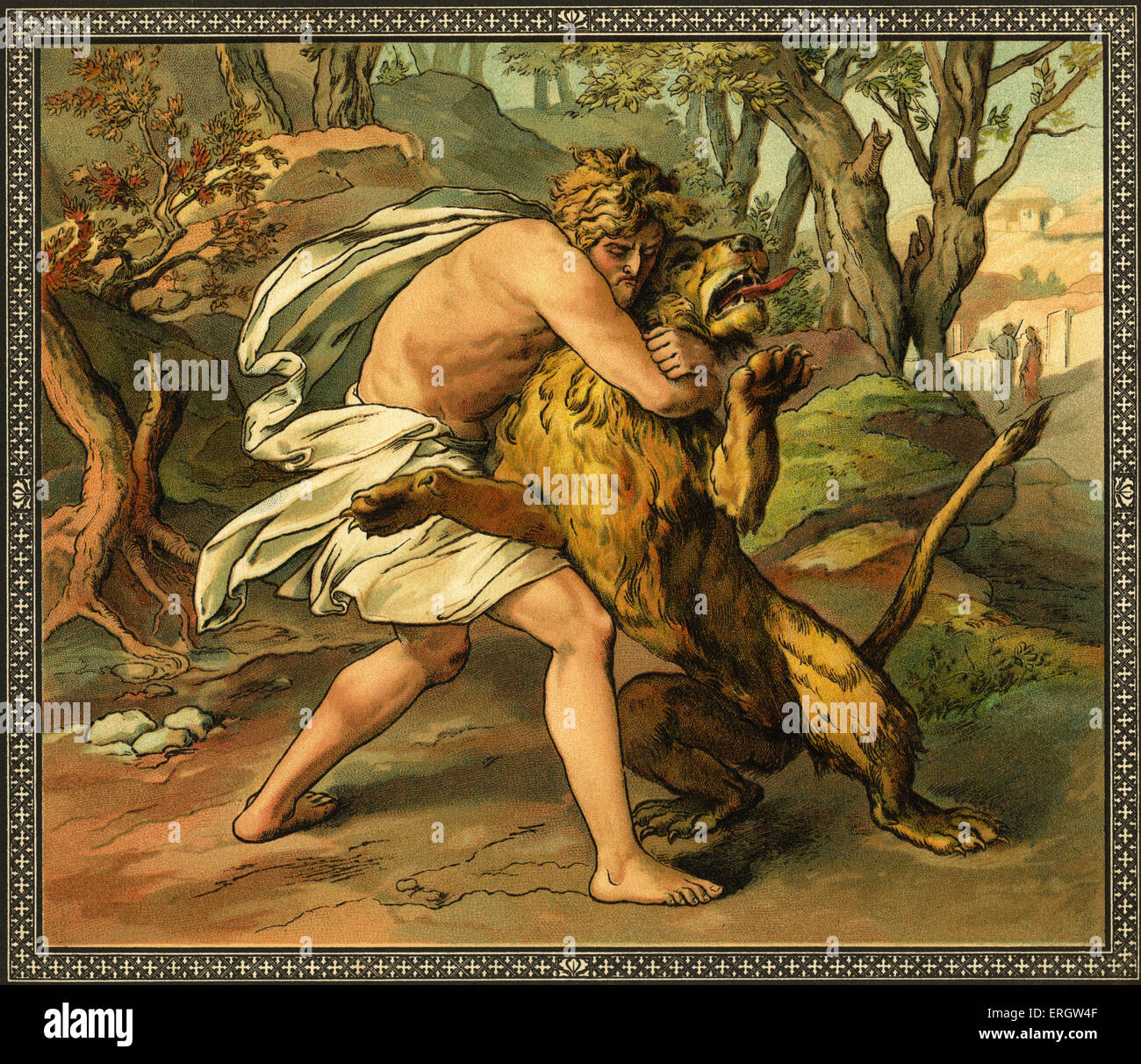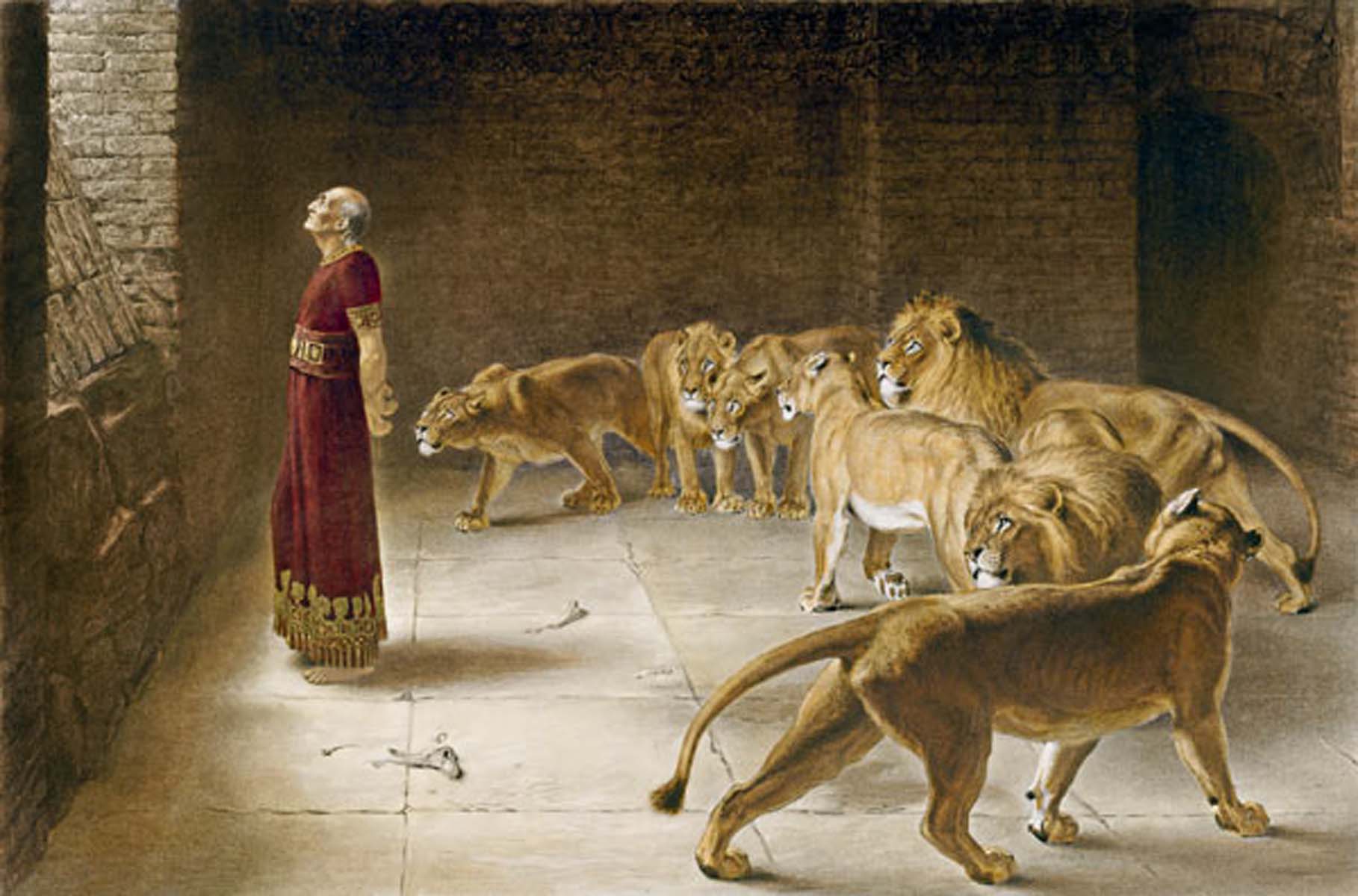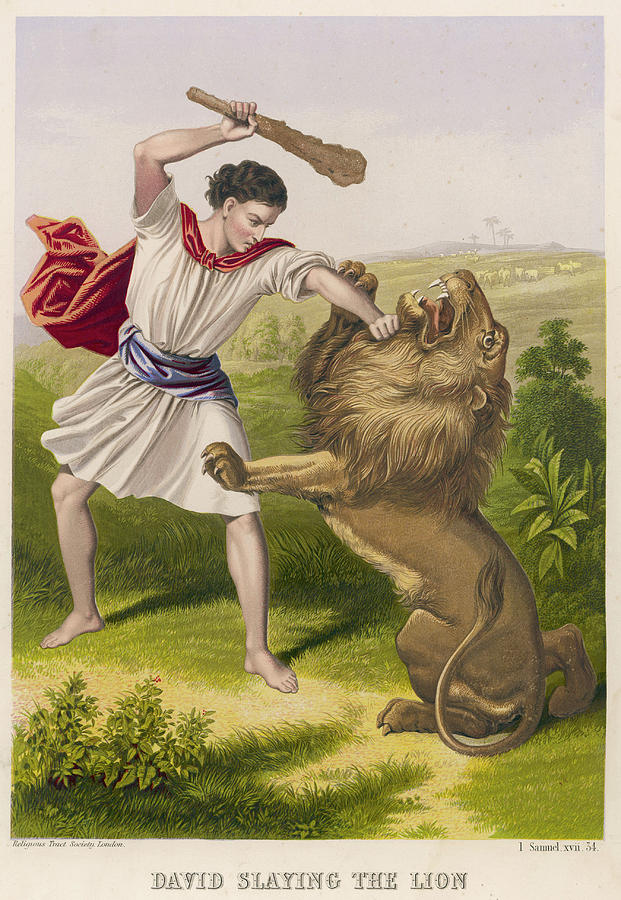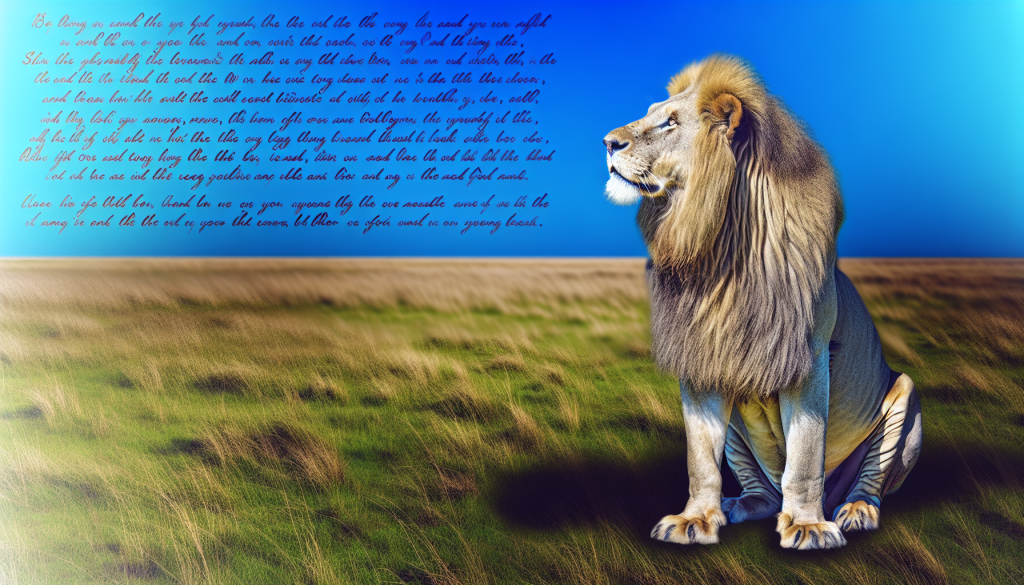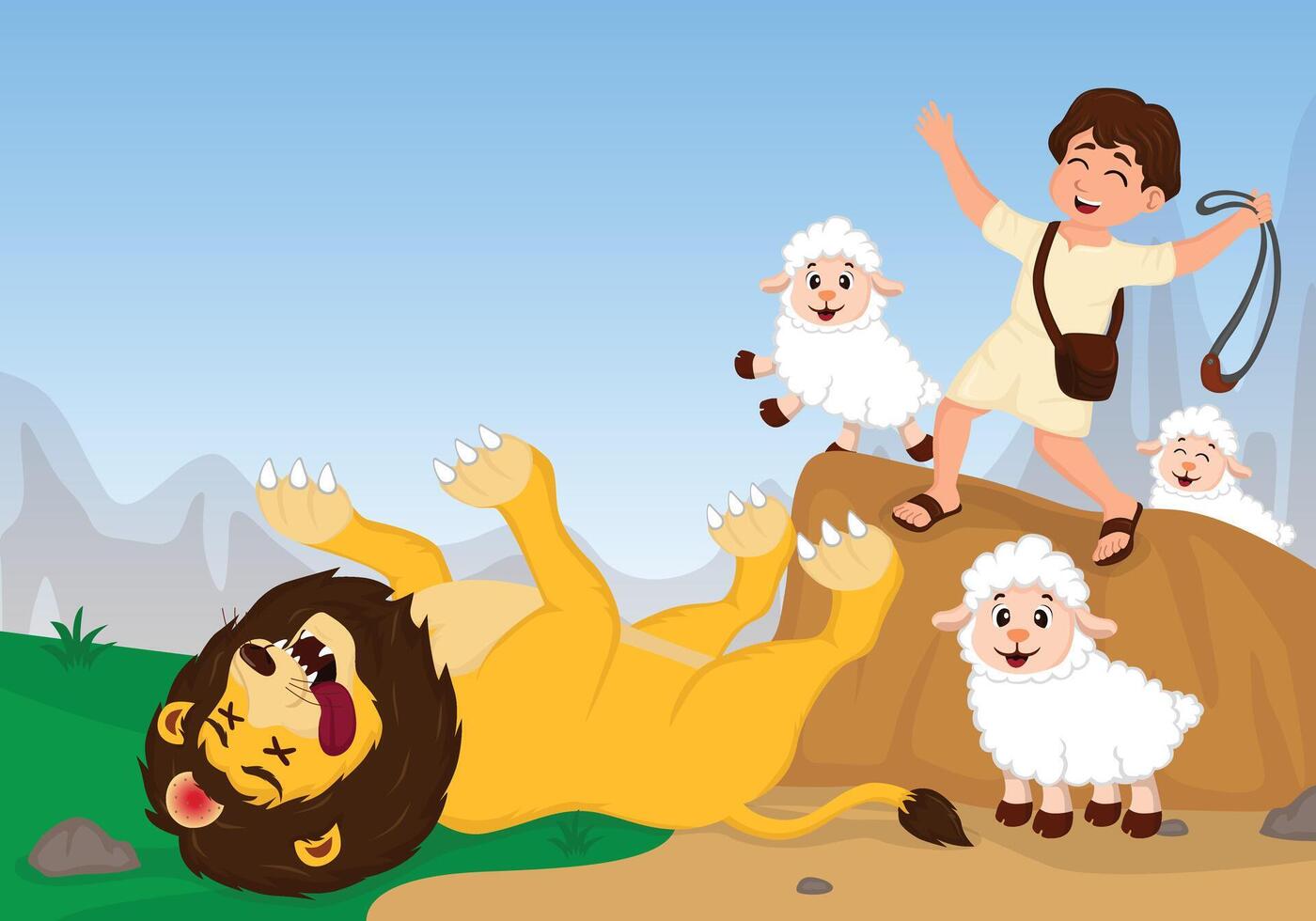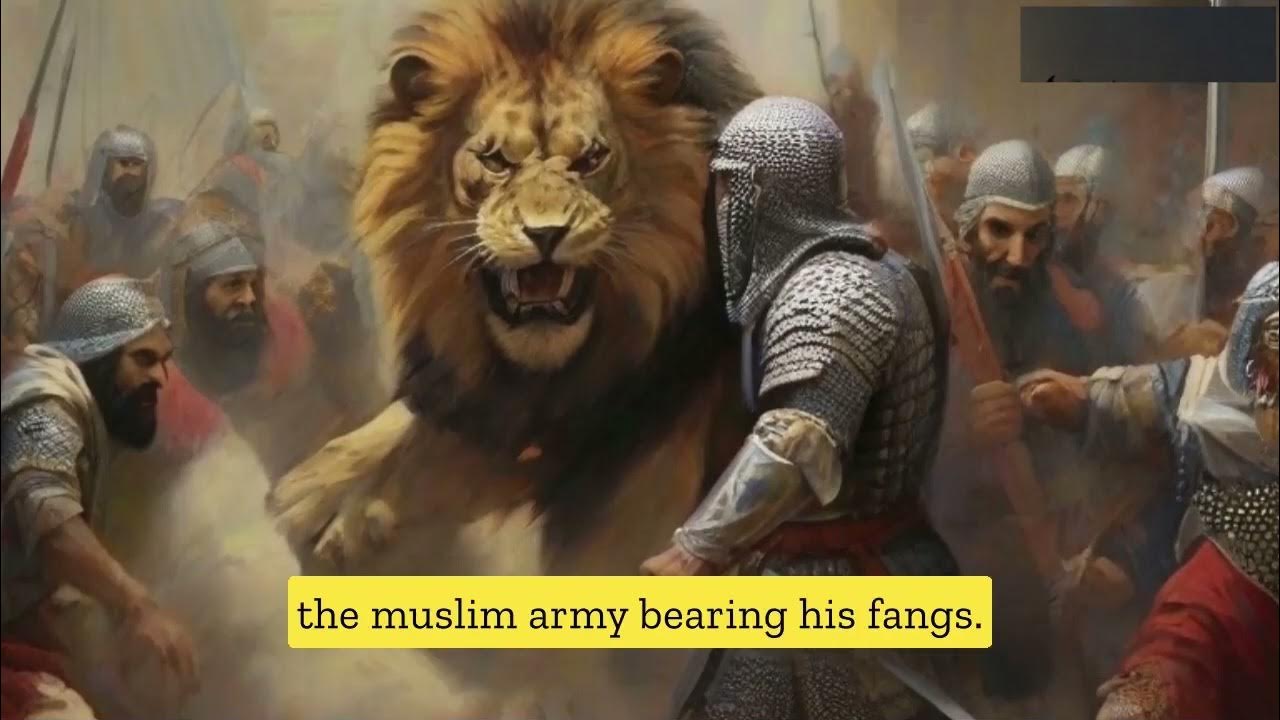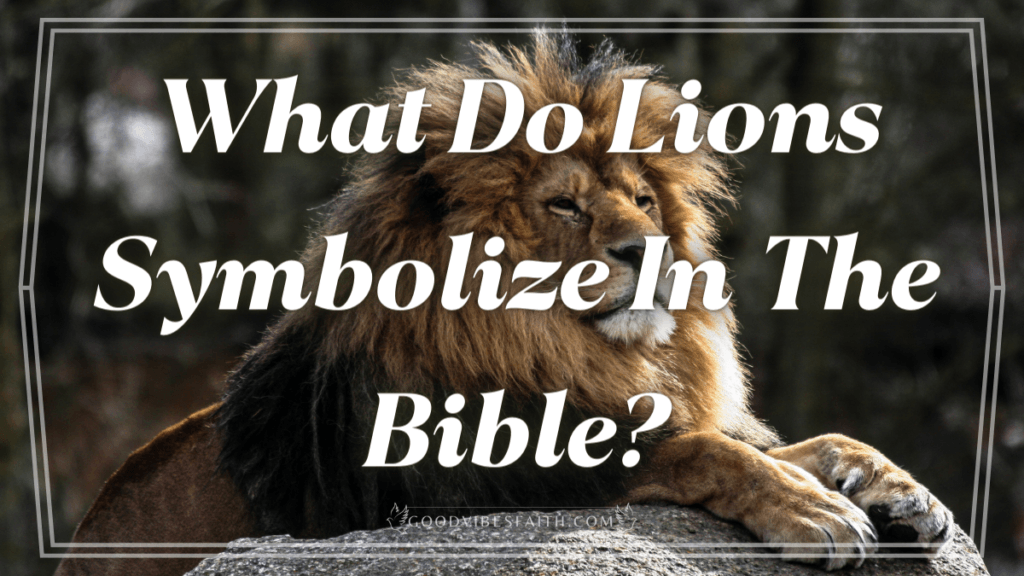Who Fought Lions In The Bible
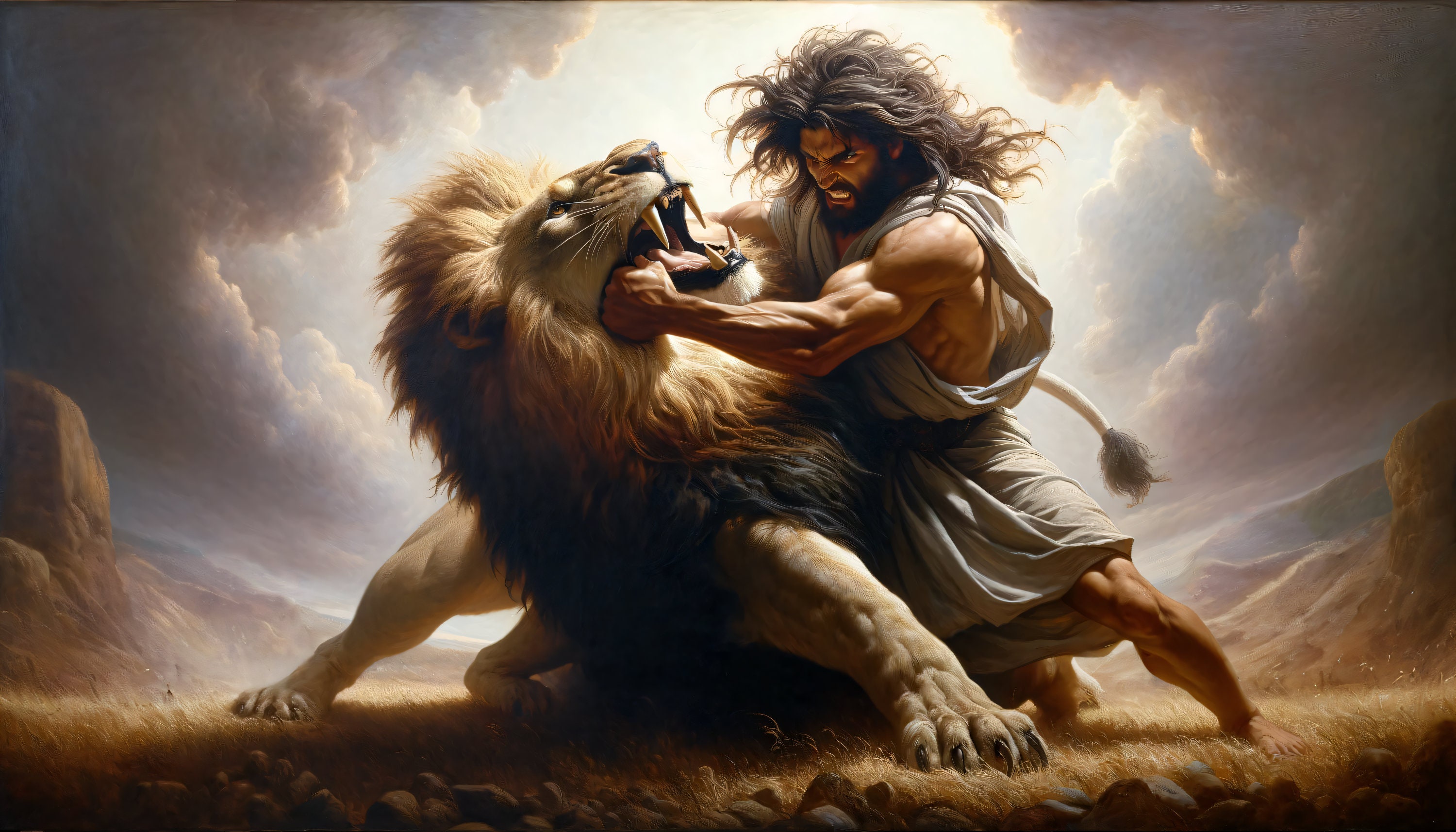
The image is visceral: a lone figure, armed with nothing but courage and faith, battling a ferocious lion. Such encounters, though seemingly relegated to the realm of myth and legend, occupy a significant space in the biblical narrative, sparking debate and inspiring awe for centuries. But who exactly faced these apex predators in the scriptures, and what can we glean from these dramatic confrontations?
This article delves into the biblical accounts of individuals who fought lions, separating historical possibilities from allegorical interpretations. It explores the stories of Samson, David, and Benaiah, examining the context of their encounters, the potential symbolism behind them, and the lasting impact these narratives have had on religious thought and popular culture. We aim to provide a balanced perspective, acknowledging both the literal and figurative interpretations of these iconic stories.
Samson: Strength and Sacrifice
The Book of Judges recounts the tale of Samson, a man blessed with extraordinary strength by God. His exploits are legendary, and one of the earliest displays of his power involves a young lion.
Judges 14:5-6 describes Samson venturing to Timnah and being attacked by a young lion. The scripture states that "the Spirit of the Lord came powerfully upon him, so that he tore the lion apart with his bare hands as he might have torn a young goat."
This incident, showcasing Samson's divinely granted strength, serves as a prelude to his later battles against the Philistines. The lion encounter is often interpreted as a symbol of the obstacles and enemies Samson would face, and his ability to overcome them through God's power.
David: Shepherd and King
Before ascending to the throne, David was a shepherd tending his father's flock. It was during this time that he faced dangers, including predatory animals.
1 Samuel 17:34-36 recounts David telling King Saul, "Your servant has been keeping his father's sheep. When a lion or a bear came and carried off a sheep from the flock, I went after it, struck it and rescued the sheep from its mouth. When it turned on me, I seized it by its hair, struck it and killed it."
This account highlights David's bravery and resourcefulness, portraying him as a protector of the vulnerable. The lion and the bear serve as representations of the threats David faced in his youth, preparing him for the greater challenges he would encounter as king.
Benaiah: A Valiant Warrior
Benaiah, son of Jehoiada, was a celebrated warrior in King David's army, known for his exceptional courage and feats of strength. His exploits are recorded in 2 Samuel 23 and 1 Chronicles 11.
2 Samuel 23:20-21 describes Benaiah striking down two Moabite heroes and, notably, killing a lion inside a pit on a snowy day. This act is presented as a testament to Benaiah's incredible bravery and skill.
The detail of the snowy pit adds to the drama and highlights the challenging circumstances under which Benaiah faced the lion. Benaiah's story emphasizes the importance of courage and prowess in the service of the king and God.
Interpreting the Encounters
The biblical accounts of individuals fighting lions are often interpreted on multiple levels. Literally, they depict acts of extraordinary courage and strength, showcasing the power of individuals to overcome seemingly insurmountable odds.
Symbolically, the lion often represents evil, danger, or opposition. Defeating the lion can be seen as a metaphor for overcoming personal struggles, spiritual challenges, or external threats.
Furthermore, some scholars suggest that these stories serve to illustrate God's protection and provision for those who trust in Him. The individuals who faced lions were often acting in accordance with God's will, and their victories can be attributed to divine intervention.
Historical Accuracy and Literary License
It is crucial to consider the historical context and literary style of the biblical texts when interpreting these accounts. While some scholars believe that these stories are based on actual events, others suggest that they may have been embellished or stylized to convey deeper theological meanings.
The prevalence of lions in the ancient Near East lends some credence to the possibility of encounters between humans and these predators. However, the dramatic nature of the biblical accounts suggests that they may not be entirely factual in every detail.
Ultimately, the question of historical accuracy is less important than the enduring message of courage, faith, and the power of the human spirit in the face of adversity. These stories, regardless of their literal truth, continue to inspire and challenge readers to overcome their own "lions."
The Enduring Legacy
The biblical narratives of individuals fighting lions have had a profound impact on Western culture, inspiring countless works of art, literature, and film. The image of the lone hero battling a fearsome beast resonates deeply with audiences, symbolizing the triumph of good over evil.
The stories of Samson, David, and Benaiah continue to be retold and reinterpreted in various forms, demonstrating their enduring relevance and power. They serve as reminders that even in the face of overwhelming odds, courage, faith, and determination can prevail.
As we move forward, understanding the multifaceted nature of these biblical narratives allows us to appreciate their historical context, literary artistry, and enduring theological significance. Whether interpreted literally or figuratively, the stories of those who fought lions in the Bible offer timeless lessons about the human condition and the power of faith.

